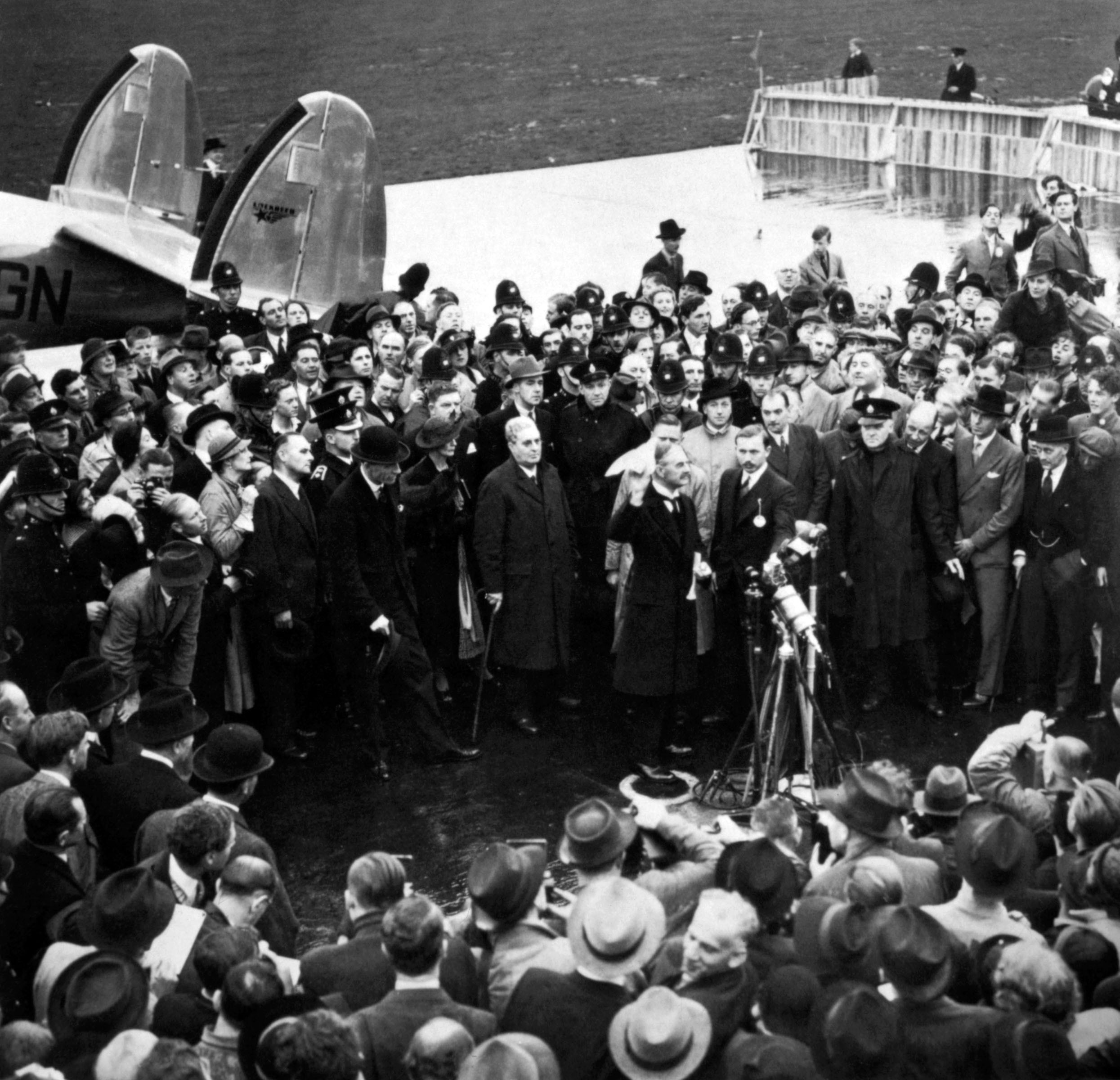Chamberlain, << CHAYM buhr lihn, >> Neville (1869-1940), served as prime minister of the United Kingdom from May 1937 to May 1940. Chamberlain was closely associated with the policy of appeasement toward Nazi Germany. This policy was based on the belief that war could be prevented by meeting some of the demands of the German dictator Adolf Hitler. The policy led to the United Kingdom’s acceptance of the Munich Agreement of 1938, which gave Germany the Sudetenland region of Czechoslovakia. In return, Hitler promised that Germany would claim no additional territory in Czechoslovakia. But in March 1939, Hitler seized the rest of Czechoslovakia. On September 1, Germany invaded Poland. Two days later, Chamberlain’s government took the United Kingdom into World War II (1939-1945). British dissatisfaction with Chamberlain’s handling of the war led to his resignation in 1940.

Arthur Neville Chamberlain was born on March 18, 1869, in Birmingham. He was educated at Rugby School and Mason College. He married Anne de Vere Cole in 1911. The couple had two children. In 1918, Chamberlain entered Parliament as a Conservative representative for Ladywood, Birmingham, in the House of Commons. He was minister of health from 1924 to 1929 and chancellor of the exchequer (the official who prepares the annual budget) from 1931 to 1937. He died on Nov. 9, 1940, near Reading, Hampshire.
Other members of the Chamberlain family were also prominent in British politics. Neville’s father, Joseph Chamberlain, won election to Parliament in 1876 and was the United Kingdom’s colonial secretary from 1895 to 1903. Neville’s half brother, Sir Austen Chamberlain, was elected to Parliament in 1892 and served as the United Kingdom’s foreign secretary from 1924 to 1929. He helped negotiate the Locarno treaties of 1925 and shared the Nobel Peace Prize that year (see Locarno Conference ).
See also Munich Agreement ; World War II (The failure of appeasement) .
